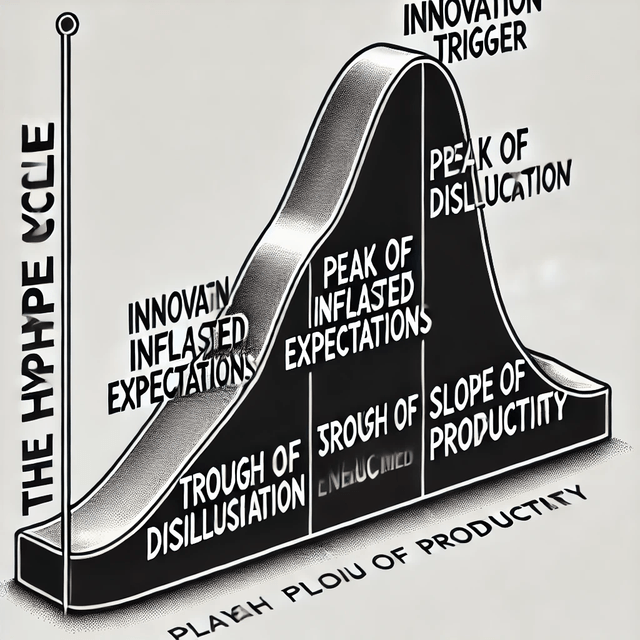Did Economists Ruin Society?
- 21 Aug, 2024

The Role of Economists in Shaping Modern Society: A Critical Examination
The influence of economists on contemporary society is profound and multifaceted, shaping not only economic policies but also societal values and priorities. This report delves into the complex relationship between economic theories and societal outcomes, exploring how economists have contributed to both the advancement and the challenges of modern civilization.
Economists have long been regarded as key architects of policy-making, wielding significant influence over national and international economic strategies. Their expertise is often seen as essential for ensuring prosperity and growth, as highlighted in a study on the political power of economists. This reliance on economic knowledge has led to a shift in policy advisory systems, where academic economists are increasingly viewed as legitimate providers of analysis and advice, often overshadowing other forms of expertise.
However, the dominance of economic reasoning in policy-making has not been without its drawbacks. The Great Depression serves as a historical example of how economic missteps can lead to widespread societal harm. The period saw a retreat from free-market capitalism, with increased government intervention to correct market failures. This shift had long-lasting implications, influencing macroeconomic policies and contributing to the development of Keynesian economics, which emphasized government intervention to stabilize economies.
Moreover, the focus on economic growth and competition, often driven by the principles of self-interest and greed, has led to significant social and environmental challenges. As noted by Robert H. Frank, unchecked competition can result in “expenditure cascades,” where individuals strive to outdo each other in consumption, leading to financial instability and societal inequality. This phenomenon underscores the limitations of traditional economic theories that prioritize growth over sustainability and social welfare.
In recent years, there has been a growing recognition of the need to integrate social and environmental considerations into economic models. The emergence of social economics highlights the importance of understanding how socioeconomic factors influence financial decisions and societal outcomes. This approach challenges the conventional focus on economic growth, advocating for a more holistic view that considers the well-being of individuals and communities.
As we navigate the complexities of the 21st century, it is crucial to critically assess the role of economists in shaping societal norms and policies. By examining the historical and contemporary impacts of economic theories, this report aims to provide a comprehensive understanding of how economists have both contributed to and hindered societal progress.
Table of Contents
Open Table of Contents
- The Role of Economic Theories in Shaping Societal Structures
- The Legacy of Classical Economics
- Keynesian Economics and Government Intervention
- The Rise of Neoliberalism and Market Deregulation
- The Impact of Supply-Side Economics
- The Critique of Economic Growth Models
- The Influence of Behavioral Economics
- The Role of Economic Theories in Policy Formulation
- The Ethical Considerations of Economic Policies
- The Future of Economic Thought
- Economic Theories and Environmental Sustainability
- The Role of Greed in Economic Models
- References
The Role of Economic Theories in Shaping Societal Structures
The Legacy of Classical Economics
Classical economics, pioneered by figures such as Adam Smith, David Ricardo, and John Stuart Mill, laid the groundwork for modern economic thought. Smith’s concept of the “invisible hand” suggested that individual self-interest in a free market leads to societal benefits, promoting economic prosperity through competition and specialization (instrik.medium.com). However, this theory has been criticized for neglecting the social and environmental costs of unchecked market forces. The emphasis on free markets and limited government intervention has often led to increased economic inequality and environmental degradation, as markets fail to account for externalities such as pollution and resource depletion.
Keynesian Economics and Government Intervention
John Maynard Keynes revolutionized economic thought with his advocacy for government intervention to stabilize economies during downturns. Keynesian economics posits that during recessions, increased government spending can stimulate demand and reduce unemployment (instrik.medium.com). While this approach has been credited with helping to mitigate the effects of economic crises, such as the Great Depression and the 2008 financial crisis, it has also been blamed for contributing to inflation and public debt. Critics argue that Keynesian policies can lead to inefficient government spending and distortions in market signals, ultimately undermining long-term economic growth.
The Rise of Neoliberalism and Market Deregulation
Neoliberalism, which gained prominence in the late 20th century, advocates for deregulation, privatization, and reduced government intervention in the economy. This approach was heavily influenced by the Chicago School of Economics, led by Milton Friedman, who emphasized the importance of monetary policy and free markets (instrik.medium.com). Neoliberal policies have been credited with fostering economic growth and innovation by reducing barriers to trade and investment. However, they have also been criticized for exacerbating income inequality and weakening social safety nets, as the focus on market efficiency often overlooks the needs of marginalized communities.
The Impact of Supply-Side Economics
Supply-side economics, popularized during the Reagan administration, focuses on boosting economic growth by reducing taxes and regulatory burdens on businesses. Proponents argue that lower taxes increase incentives for investment and production, leading to job creation and higher tax revenues (hoover.org). However, critics contend that supply-side policies disproportionately benefit the wealthy and corporations, contributing to income inequality and budget deficits. The “trickle-down” effect, where benefits to the rich are expected to eventually reach the broader population, has been widely debated, with many arguing that it fails to address the structural issues underlying economic disparities.
The Critique of Economic Growth Models
Traditional economic growth models prioritize GDP expansion as a measure of success, often overlooking the social and environmental costs associated with growth. Critics, such as those from the ecological economics school, argue that relentless pursuit of growth leads to resource depletion, environmental degradation, and social inequality (link.springer.com). These models have been challenged by alternative approaches that emphasize sustainability and well-being over mere economic output. The growing recognition of climate change and resource scarcity has prompted calls for a reevaluation of growth-centric policies, advocating for a more holistic approach that balances economic, social, and environmental objectives.
The Influence of Behavioral Economics
Behavioral economics, which integrates insights from psychology into economic models, challenges the traditional assumption of rational decision-making. This field has highlighted how cognitive biases and social influences affect economic behavior, leading to suboptimal outcomes (instrik.medium.com). By understanding these behavioral patterns, policymakers can design interventions that nudge individuals towards better choices, such as saving for retirement or adopting healthier lifestyles. However, the application of behavioral insights raises ethical concerns about manipulation and paternalism, as it involves influencing individual choices without their explicit consent.
The Role of Economic Theories in Policy Formulation
Economic theories have a profound impact on policy formulation, shaping decisions on taxation, regulation, and social welfare. Economists provide evidence-based insights into the potential consequences of policy interventions, helping to design programs that promote economic stability and social equity (instrik.medium.com). However, the reliance on economic models can also lead to technocratic governance, where complex social issues are reduced to quantitative metrics, potentially overlooking the qualitative aspects of human well-being. The challenge lies in balancing the technical expertise of economists with the diverse values and perspectives of society.
The Ethical Considerations of Economic Policies
The implementation of economic policies raises important ethical considerations, particularly regarding their impact on vulnerable populations. Policies that prioritize efficiency and growth may inadvertently exacerbate social inequalities, as they often fail to account for the distributional effects of economic changes (supermoney.com). Economists must grapple with the ethical implications of their recommendations, ensuring that policies are designed to promote inclusive growth and social justice. This requires a shift from a purely economic focus to a broader consideration of human rights and environmental sustainability.
The Future of Economic Thought
As the global economy faces unprecedented challenges, from climate change to technological disruption, the role of economic theories in shaping societal outcomes is more critical than ever. Economists must adapt their frameworks to address the complex, interconnected issues of the modern world, integrating insights from diverse disciplines and perspectives (instrik.medium.com). This involves rethinking traditional assumptions and embracing innovative approaches that prioritize sustainability, equity, and resilience. By doing so, economists can contribute to building a more just and sustainable future for all.
Economic Theories and Environmental Sustainability
The Intersection of Economic Theories and Environmental Policies
Economic theories have long influenced environmental policies, often prioritizing market efficiency over ecological sustainability. Traditional economic models, such as those based on the neoclassical framework, emphasize market solutions to environmental issues, assuming that markets can self-correct through mechanisms like carbon pricing and cap-and-trade systems. However, these approaches have been criticized for inadequately addressing the complexities of environmental degradation and climate change.
The neoclassical approach often fails to account for the non-market values of ecosystems and biodiversity, leading to policies that may exacerbate environmental harm. For instance, the reliance on market-based solutions can overlook the need for regulatory interventions to protect public goods like clean air and water. This section explores how economic theories have shaped environmental policies and the limitations of these approaches in achieving true sustainability.
The Environmental Kuznets Curve: A Misguided Framework?
The Environmental Kuznets Curve (EKC) hypothesis suggests that environmental degradation initially increases with economic growth, but eventually decreases as societies become wealthier and can afford cleaner technologies. This theory has been influential in shaping policies that prioritize economic growth with the expectation that environmental quality will improve over time. However, recent studies, such as those conducted in South Asia, challenge the validity of the EKC, showing that economic growth does not automatically lead to environmental improvements.
Critics argue that the EKC oversimplifies the relationship between economic growth and environmental quality, ignoring factors like political stability, technological innovation, and cultural values. Moreover, the assumption that wealthier nations will naturally invest in environmental protection fails to consider the global nature of environmental issues, where the actions of one country can have far-reaching impacts on others. This section examines the limitations of the EKC framework and the need for more nuanced approaches to integrating economic and environmental goals.
The Role of Fiscal and Monetary Policies in Environmental Outcomes
Fiscal and monetary policies are powerful tools that can significantly impact environmental sustainability. However, their potential to drive positive environmental outcomes is often underutilized. For example, fiscal policies such as subsidies for renewable energy and taxes on carbon emissions can incentivize sustainable practices and reduce reliance on fossil fuels. Similarly, monetary policies that support green investments can facilitate the transition to a low-carbon economy.
Research indicates that fiscal and monetary policies can effectively reduce carbon emissions and ecological footprints when aligned with environmental objectives. A study on BRICS economies highlights the importance of political stability in moderating the relationship between economic policy uncertainty and environmental degradation. This section explores how fiscal and monetary policies can be leveraged to promote environmental sustainability and the challenges in aligning these policies with ecological goals.
Market Failures and the Need for Regulatory Interventions
Market failures, such as negative externalities and the tragedy of the commons, are prevalent in environmental issues. These failures occur when the market does not account for the full social costs of production and consumption, leading to overexploitation of natural resources and environmental degradation. Economic theories that rely solely on market mechanisms often fail to address these issues, necessitating regulatory interventions.
Regulations, such as emissions standards and protected areas, play a crucial role in correcting market failures and ensuring the sustainable use of natural resources. However, the effectiveness of these regulations depends on their design and enforcement. This section discusses the limitations of market-based solutions in addressing environmental challenges and the importance of regulatory interventions in achieving sustainability.
The Shift Towards Sustainable Economic Models
In response to the limitations of traditional economic theories, there is a growing movement towards sustainable economic models that prioritize ecological health and social well-being. These models, such as natural capitalism, emphasize the integration of environmental and economic goals, recognizing the interdependence of human and natural systems.
Sustainable economic models advocate for a shift from linear to circular economies, where resources are reused and recycled to minimize waste and environmental impact. They also promote the valuation of ecosystem services and the incorporation of social and environmental costs into economic decision-making. This section explores the principles of sustainable economic models and their potential to transform the relationship between economic activity and environmental sustainability.
In conclusion, while economic theories have historically prioritized market efficiency, there is a growing recognition of the need to integrate environmental sustainability into economic frameworks. By rethinking traditional assumptions and embracing innovative approaches, economists can contribute to building a more sustainable and equitable future.
The Role of Greed in Economic Models
Greed as a Driving Force in Capitalist Economies
In capitalist economies, greed is often seen as a driving force that fuels innovation and economic growth. The notion that self-interest leads to societal benefits is rooted in classical economic theories, particularly those of Adam Smith, who posited that individuals pursuing their own interests inadvertently contribute to the overall good of society through the “invisible hand” of the market. This concept has been further developed by economists like Milton Friedman, who argued that greed is an essential component of the free market system, which has been instrumental in lifting millions out of poverty (Springer).
However, this perspective has been criticized for overlooking the negative externalities associated with unchecked greed, such as environmental degradation and social inequality. The pursuit of profit at any cost can lead to harmful practices that prioritize short-term gains over long-term sustainability, as seen in the 2008 financial crisis, where excessive risk-taking and lack of regulation on Wall Street had devastating effects on the global economy (The Impact Investor).
The Ethical Implications of Greed in Economic Models
While the previous section discussed the role of greed in driving economic growth, this section will explore the ethical implications of incorporating greed into economic models. Normative economics, which considers the ethical dimensions of economic decision-making, highlights the moral dilemmas faced by policymakers when balancing efficiency and equity (AB Academies).
Greed-driven models often prioritize economic efficiency and growth, potentially exacerbating social inequalities and environmental harm. Ethical frameworks such as utilitarianism and virtue ethics provide lenses through which economists can assess the moral implications of economic policies, emphasizing the need for policies that promote social welfare and environmental sustainability (AB Academies).
Greed and Wealth Distribution
The impact of greed on wealth distribution is a critical issue in economic models. The pursuit of personal wealth often leads to significant disparities between the richest and poorest segments of society. This widening gap is exacerbated by economic models that prioritize profit maximization over equitable wealth distribution (The Impact Investor).
Economic models that incorporate greed as a central tenet may inadvertently contribute to income inequality by encouraging practices that favor the accumulation of wealth by a select few. This can result in reduced social mobility and increased financial instability, as seen in the growing disparity in wealth distribution in the United States (The Impact Investor).
Greed and Market Failures
While the previous section examined the impact of greed on wealth distribution, this section will focus on how greed contributes to market failures. Market failures occur when the market does not allocate resources efficiently, often due to negative externalities or information asymmetries. Greed-driven economic models can exacerbate these failures by prioritizing short-term profits over long-term sustainability (IMF).
For example, the excessive risk-taking that led to the 2008 financial crisis was driven by a focus on short-term gains, resulting in significant market failures that required government intervention to stabilize the economy. This highlights the need for regulatory interventions to correct market failures and ensure the sustainable use of resources (The Impact Investor).
Greed and the Need for Regulatory Interventions
The role of greed in economic models underscores the importance of regulatory interventions to mitigate its negative effects. While market-based solutions are often favored in economic models, they may not adequately address the complexities of greed-driven behaviors that lead to market failures and social inequalities (IMF).
Regulatory interventions, such as emissions standards and financial regulations, play a crucial role in curbing the excesses of greed and promoting sustainable economic practices. These interventions are essential for ensuring that economic models align with societal goals of equity and sustainability, rather than solely focusing on profit maximization (The Impact Investor).
In conclusion, while greed has been a driving force in capitalist economies, its incorporation into economic models raises significant ethical and practical concerns. The pursuit of profit at any cost can lead to market failures, social inequalities, and environmental harm, necessitating regulatory interventions to promote sustainable and equitable economic practices. By acknowledging the limitations of greed-driven models, economists can contribute to building a more just and sustainable future.
References
- https://link.springer.com/referenceworkentry/10.1007/978-3-319-24612-3_1078
- https://www.imf.org/external/pubs/ft/fandd/2011/06/basics.htm
- https://link.springer.com/chapter/10.1007/978-3-030-70087-4_8
- [https://www.abacademies.org/articles/ethics-and-normative-decisionmaking-in-economics 1533-3604-24-6-126.pdf](https://www.abacademies.org/articles/ethics-and-normative-decisionmaking-in-economics 1533-3604-24-6-126.pdf)
- https://www.sciencedirect.com/science/article/pii/S0191886918306469
- https://www.elibrary.imf.org/view/journals/022/0048/002/article-A015-en.xml
- https://www.bu.edu/eci/files/2021/08/Comparative-Economic-Systems.pdf
- https://www.abacademies.org/articles/understanding-normative-economics-exploring-values-ethics-and-policy-perspectives-16688.html
- https://theimpactinvestor.com/greed-in-america/
- https://www.abacademies.org/articles/understanding-normative-economics-exploring-values-ethics-and-policy-perspectives.pdf
- https://www.imf.org/external/pubs/ft/fandd/basics/8_econ-models.htm
- https://theconversation.com/oh-the-morality-why-ethics-matters-in-economics-5963
- https://link.springer.com/article/10.1007/s11266-024-00654-7
- https://www-sup.stanford.edu/books/title/?id=24196
- https://solidarity-project.org/your-greed-is-hurting-the-economy/


